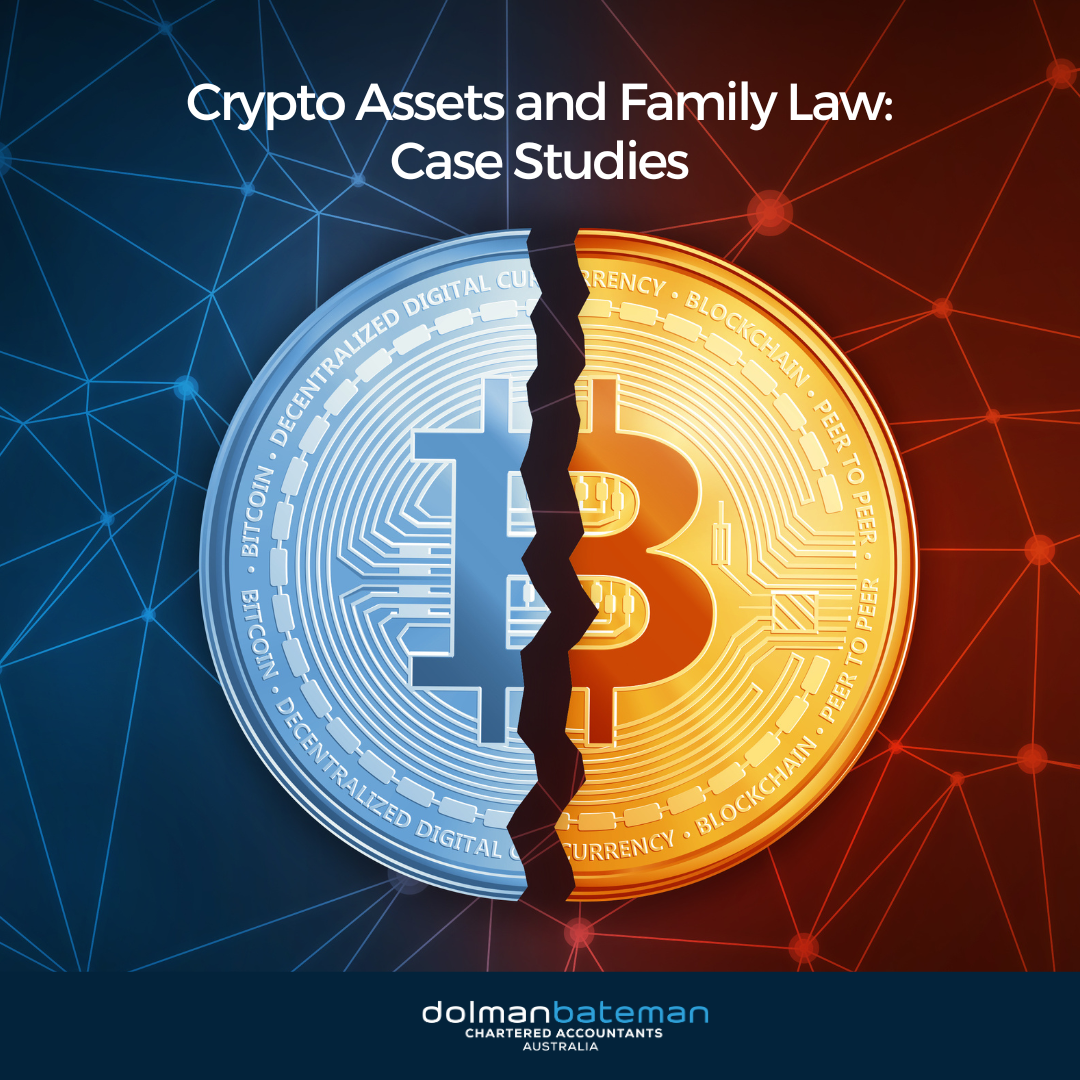Crypto Assets and Family Law: Case Studies
- Arnold Shields

- Feb 10, 2025
- 3 min read
Updated: May 9, 2025

Cryptocurrency and Divorce: What Family Law Courts Say About Hidden Assets, Storage, and Speculative Losses
Cryptocurrency has added a new layer of complexity to family law property settlements, especially when one party fails to disclose their holdings or makes speculative investments without informing the other. Recent Australian and New Zealand cases show how courts are approaching these issues—from hidden crypto wallets to losses on Bitcoin scams.
1. Non-Disclosure of Cryptocurrency: Courts Are Not Buying It
In Powell & Christensen [2020] FamCA 944, Mr Christensen failed to disclose his crypto purchases despite being under a restraining order not to dispose of assets. The court used his bank transfers to determine the purchase value and added the full amount back into the asset pool. His lack of cooperation was treated as a premature distribution of property.
Similarly, in Rasheem & Rasheem [2022] FedCFamC1F 248 and (No 4) [2023] FedCFamC1F 690, the husband’s partial disclosure and vague explanations triggered the court to rely on expert evidence and trading platform data collected by the wife. The court inferred he still had access to assets and added estimated values back into the property pool.
2. Crypto Storage: USBs, Phones, and Vanishing Assets
Beck v Wilkerson [2019] NZFC 9883 dealt with a mining operation involving Litecoins. The couple disagreed over the number and location of mined coins, with allegations of theft and no reliable evidence to verify ownership. The court ordered that any retrieved Litecoins be shared equally between the parties.
In Chaves & Chaves [2019] FamCA 1022, the husband claimed a USB in the wife’s possession held the key to $35,000 in Bitcoin. However, the USB remained locked, and suspicions were raised about access and potential loss of funds. The court left the USB where it was, as the dispute could not be resolved without proof.
These cases highlight the challenges in tracing and verifying crypto holdings, especially when wallets are secured by lost or inaccessible private keys.
3. Speculative Losses: When Crypto Becomes a Liability
In Fallins & Fallins [2022] FedCFamC1F 495, the husband admitted he had lost $100,000 on Bitcoin investments post-separation. He failed to disclose this in his affidavit, and the wife only found out at trial. The court treated the loss as wasteful conduct and added the amount back to the asset pool, reducing his overall contribution.
Speculative investments made without the knowledge or consent of the other party are viewed unfavourably by the court—especially when large sums are involved and transparency is lacking.
Final Thoughts
Family courts in Australia and New Zealand are increasingly encountering cryptocurrency in divorce matters. These digital assets are not exempt from disclosure and are subject to the same scrutiny as traditional assets.
Here’s what matters:
Full and frank disclosure is essential.
Courts will infer values when proper evidence is not provided.
Losses from speculative crypto trading may be treated as wasteful dissipation of marital funds.
Safe and verifiable storage of crypto keys can be a legal battleground.
If you or your client are facing a divorce involving crypto assets, professional advice from forensic accountants and family lawyers is critical. At Dolman Bateman, we assist in tracing, valuing, and accounting for digital assets in family law disputes.
References to cases:
Beck v Wilkerson <2019> NZFC 9883
Chaves & Chaves <2019> FamCA 1022
Fallins & Fallins <2022> FedCFamC1F 495
Powell & Christensen <2020> FamCA 944
Rasheem & Rasheem <2022> FedCFamC1F 248
Rasheem & Rasheem (No 4) <2023> FedCFamC1F 690
Disclaimer:
The information provided in this article is general in nature and does not constitute personal financial, legal or tax advice. While every effort has been made to ensure the accuracy of this content at the time of publication, tax laws and regulations may change, and individual circumstances vary. Dolman Bateman accepts no responsibility or liability for any loss or damage incurred as a result of acting on or relying upon any of the information contained herein. You should seek professional advice tailored to your specific situation before making any financial or tax decision.

